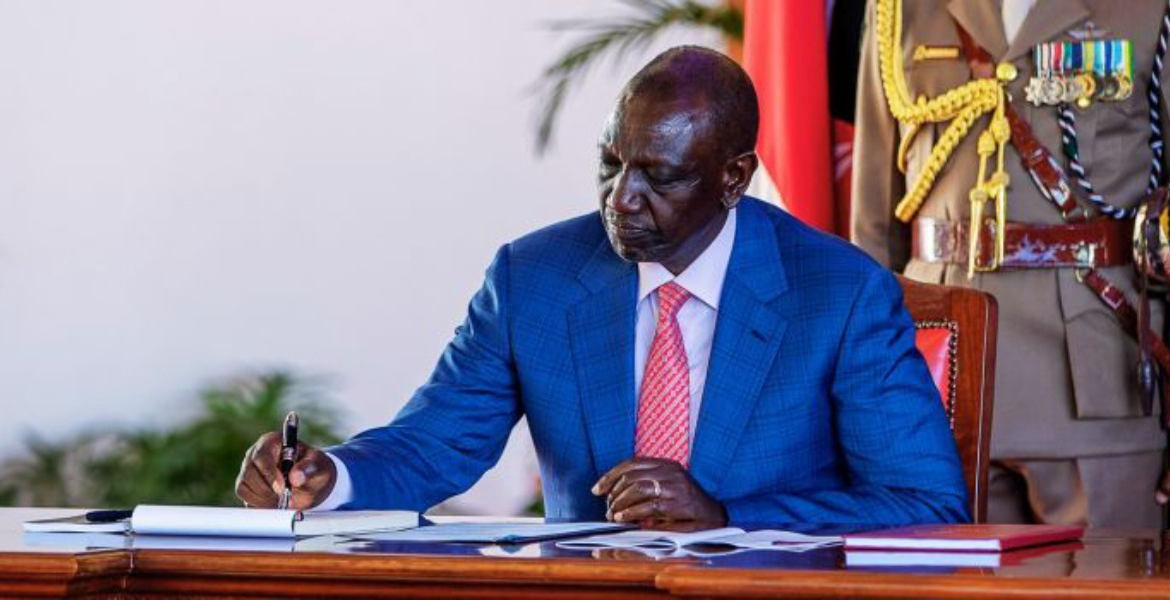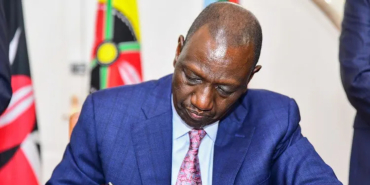Kenyan Workers and Retirees to Benefit from Tax-Free Pension Under Ruto’s New Labour Reforms

President William Ruto has announced a sweeping set of labour reforms aimed at easing financial burdens for Kenyan workers and retirees.
The announcement, made during the 60th Labour Day celebrations at Uhuru Gardens, detailed tax exemptions on pension and gratuity payments, adjustments to the Pay As You Earn (PAYE) tax relief mechanism, and substantial investments in employment and social protection initiatives. Ruto emphasises the government's dedication to recognising the contributions of Kenya's workforce while driving economic growth through strategic policy enhancements.
"This administration remains committed to honouring the contributions of Kenya’s workforce while fostering economic growth through policy enhancements,” the President stated.
A cornerstone of the reforms is the exemption of pension and gratuity payments from taxation, an initiative designed to provide retirees with greater financial security. Embedded within the Finance Bill, 2025, this measure seeks to ensure that workers transition into retirement with enhanced dignity and financial stability.
"This reform is a recognition of the service and sacrifice of our senior citizens and workers," Ruto declared. "Retirement should be met with dignity, not distress."
Further enhancing workers' financial well-being, the government plans to overhaul the PAYE taxation system to ensure that employees receive tax relief directly through their monthly salaries. This marks a departure from the previous system, where workers were required to apply for tax exemptions separately through the Kenya Revenue Authority (KRA), a process often fraught with bureaucratic delays.
Under the proposed amendments in the Finance Bill, 2025, employers will be authorised to incorporate tax relief measures directly into payroll calculations, thereby streamlining access to wage adjustments and increasing employees' disposable income. In his address, Ruto acknowledged the positive impact of recent adjustments to Kenya’s social security framework, particularly the revised National Social Security Fund (NSSF) regulations introduced in 2023.
These regulations mandate that both employers and employees contribute 6 percent of wages to the NSSF, a policy that has led to a substantial increase in national savings. The President noted that these reforms have already mobilised KSh280 billion in domestic savings, an amount nearly equivalent to Kenya’s total savings over the previous six decades. He projects that the fund could surpass the KSh1 trillion mark by 2027, significantly elevating Kenya’s savings-to-GDP ratio to 25 percent.
Highlighting agriculture as a key pillar of Kenya's economy, Ruto emphasised significant gains in farm productivity, attributing a 40 percent increase in maize production to fertiliser subsidies. Additionally, coffee farmers have benefited from price surges, with rates jumping from KSh50 to as high as KSh150 per kilogramme following structural sector reforms. Ruto also addressed ongoing efforts to enhance earnings for sugarcane farmers, citing the recent bonus payment of KSh80,000 to one farmer as a reflection of growing financial dividends within the industry.
Addressing the issue of wages, the President reiterated his directive for employers to implement the 6 percent minimum wage increment announced during the 2024 Labour Day celebrations. He instructed the Ministry of Labour to collaborate with the Public Service to enforce compliance, addressing concerns that some employers have failed to adhere to the directive. His order came in response to appeals by Central Organisation of Trade Unions (COTU) Secretary-General Francis Atwoli, who had pushed for a 24 percent wage adjustment this year, citing a sharp decline in workers’ purchasing power amid rising costs of living.
Addressing employment challenges, Ruto disclosed plans to recruit an additional 20,000 intern teachers in 2026, complementing the 76,000 new teachers hired since 2022. The government has also allocated KSh3 billion for teacher promotions and professional development, reinforcing its commitment to strengthening the education sector. On housing, Ruto outlined progress under the Affordable Housing Programme, which has generated over 250,000 jobs and laid the groundwork for expanded homeownership opportunities nationwide.
To enhance financial accessibility for workers, Atwoli recommended exempting them from initial housing deposits, citing their critical role in funding the initiative through salary deductions. Reaffirming his government’s commitment to safeguarding labour rights, Ruto directed the Ministry of Labour to ensure that outsourced workers can freely join trade unions. He also urged swift action in ratifying two key International Labour Organisation (ILO) conventions—Convention 189 on the rights of domestic workers and Convention 190 on eliminating workplace violence and harassment.
Labour migration remains another focal point, with Ruto reporting that over 200,000 Kenyans secured employment abroad last year. The establishment of a Labour Attaché Office in Berlin is expected to facilitate further bilateral employment agreements across Europe, opening new opportunities for Kenyan workers. Turning to health coverage, Ruto hailed the remarkable strides made under the Social Health Authority (SHA), noting that registrations had surged to 21 million, up from eight million under the now-defunct National Health Insurance Fund (NHIF).
Atwoli welcomed SHA’s expansion, describing it as Kenya’s most promising health protection framework. Ruto underlined the importance of revitalising Kenya’s manufacturing base, especially micro, small, and medium enterprises (MSMEs), which employ 85 percent of the workforce. He urged greater investment in the Micro and Small Enterprise Authority (MSEA) to accelerate industrialisation and reduce reliance on imports. The textile and apparel sector emerged as a key area of focus, with Ruto positing that banning second-hand clothing imports, commonly known as mitumba, could generate up to 900,000 new jobs.








Add new comment